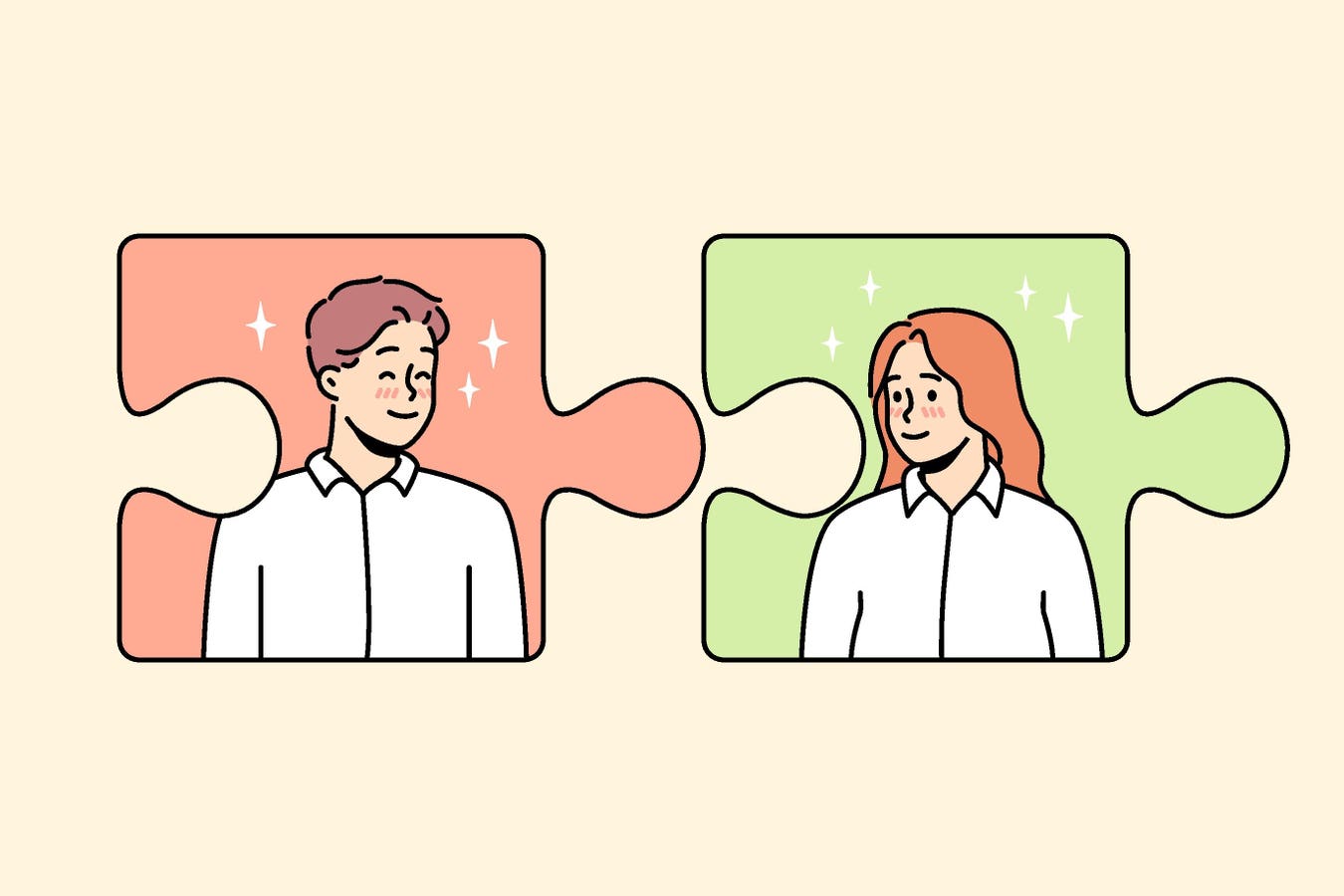Being similar to your partner may feel good at first, but it’s not what builds lasting love. Real … More
It seems plausible that couples who are alike, for instance, those who share values, interests or even a taste in movies, are more likely to succeed. From dating app algorithms to age-old relationship advice, you have likely learned that similarity equals compatibility.
By that notion, it might seem fair to look for a partner who feels familiar and shares the same taste in various aspects of life as you do. However, recent research shows that this might not be all that true.
In a 2025 study published in the Journal of Social and Personal Relationships, researchers used a large scoping review to analyze 339 studies on romantic partner similarity and relationship outcomes.
They looked at different types of similarity (personality, values, interests), various ways of measuring it (actual traits vs. perceived likeness) and a wide range of couples, starting from newlyweds to long-term partners. The results were far from straightforward, but enlightening.
Here are two reasons why partners do not necessarily need to be alike to be happy, according to the 2025 study.
1. Similarity Doesn’t Guarantee Satisfaction
You may have heard the phrase, “Like attracts like.” While the idea of you and your partner being on the same page about most things sounds comforting, researchers surprisingly found that being similar doesn’t always translate to being satisfied.
Interestingly, there were no consistent patterns in the results of the study.
In some cases, similarity, in terms of sharing the same political views or hobbies, was linked to better relationship outcomes. But in many others, it had no effect at all and sometimes was even associated with lower satisfaction.
In domains like attitudes or values, where you might expect similarity to matter more, the findings were still inconsistent.
However, researchers found that sometimes value alignment helped, especially early on in dating. But over time, it wasn’t found to be a reliable predictor of long-term happiness or connection. While similarity can help you bond over shared interests or feel understood, it doesn’t necessarily build the deeper foundation that relationships require
Simply put, being similar to their partner didn’t make couples more likely to stay together. Neither was similarity found to be a strong predictor of relationship stability.
Factors like emotional attunement, communication quality and shared goals often played a bigger role in how satisfied and secure couples felt over time.
To better understand this, imagine a couple with similarities — say, both love books and share the same taste in music. They even laugh at the same memes and follow the same routines.
However, when it comes to stress, one of them shuts down emotionally while the other seeks reassurance. Now, if they don’t know how to navigate that difference or talk through tough moments, any shared interests cannot protect them from resentment, misunderstanding or distance over time.
In contrast, picture a different couple, where one is extroverted and highly ambitious and the other is more introverted, preferring a simpler, quieter life. While these two may appear mismatched, if they’ve built trust by learning how to listen, support each other’s growth and repair after conflict in a healthy way, their connection is likely safe and deeply fulfilling — even though they operate differently.
So, the question isn’t about how much you have in common with your partner but rather about whether you both can hold space for each other’s differences.
In the end, it’s the willingness to understand and grow together, even when you’re not the same, that can ensure satisfaction in the relationship.
2. Perceived Similarity Holds More Power Than Actual Similarity
In the 2025 study, actual similarity between partners had mixed or weak associations with satisfaction, while “perceived similarity” showed a stronger and more reliable connection to how happy and connected couples felt.
This means that when it comes to relationship satisfaction, these findings show that how similar you feel you are to your partner might matter more than how similar you actually are.
So, it’s not about whether you really are alike but more about if you believe you are. This belief can create a sense of emotional closeness and reinforce the idea that you’re on the same team, even if you disagree on a lot of things.
This idea was supported by another study published in the Journal of Personality and Social Psychology.
Researchers used a couple-centered approach and examined almost 300 newlyweds to understand how different kinds of similarity related to marital quality. They assessed each couple as a unit, instead of looking at individuals separately and analyzed similarities in areas like personality, attitudes and attachment styles.
Researchers found that actual similarity in personality traits and not attitudes was associated with better marital quality.
However, the strongest predictor of satisfaction was similarity in attachment characteristics, referring to how partners approach intimacy and emotional closeness in relationships.
On top of that, the study also revealed that how well partners’ overall personality profiles matched (i.e., their pattern across multiple traits) was a better predictor of satisfaction than just the raw difference on individual traits.
This supports the idea that emotional and psychological compatibility, or how two people “fit” together matters more than whether they simply share interests or opinions. It’s about how emotionally “in sync” you are together.
Fall In Love With The Process Of Knowing Each Other
The results of the 2025 study encourage us rethink the idea that compatibility is about sameness. Maybe what matters more is curiosity and the willingness to keep exploring your partner as they grow and evolve along with you.
In this way, when you remain genuinely interested in each other’s inner worlds, even differences can become sources of closeness rather than conflict.
Additionally, a shared idea and orientation toward growth overall can offer a far deeper bond than just shared hobbies or backgrounds.
Remember, if you’re both committed to evolving both individually and together, you can build a dynamic that can outlast superficial similarities.
How happy and satisfied do you feel in your relationship? Take this science-backed test to find out: Relationship Satisfaction Scale









